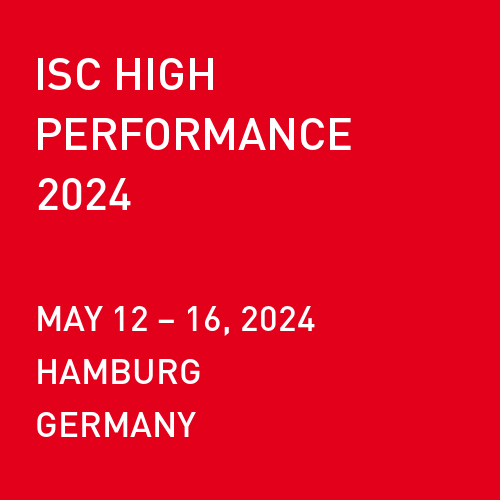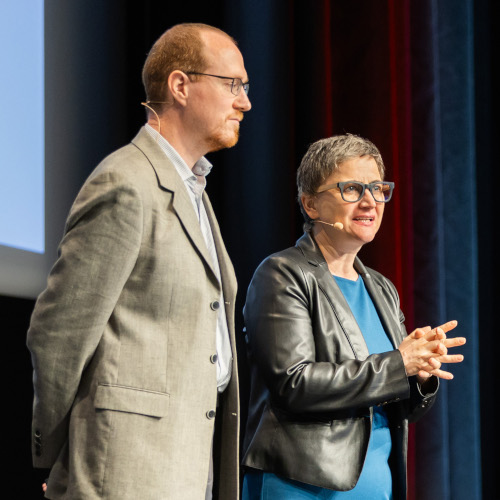Biographies
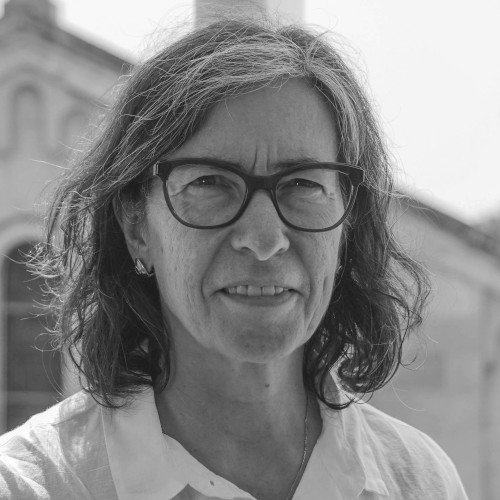
Rosa Badia
Manager of the Workflows & Distributed Computing Research Group, Barcelona Supercomputing Center (BSC), Spain
Rosa M. Badia, ISC 2024 Jack Dongarra Early Career Award Committee member & Wednesday Keynote Speaker, manages the Workflows and Distributed Computing research group at the Barcelona Supercomputing Center (BSC), and she is involved in several notable European projects - AI-Sprint, CALESTIS, ICOS, CEEC CoE, PerMedCoE, and DT-GEO. She is the PI of the EuroHPC eFlows4HPC project. Her current research interest is programming models for complex platforms (from multicore GPUs to Grid/Cloud). She has published over 200 papers on her research topics at international conferences and journals. She received the Euro-Par Achievement Award 2019 for her contributions to parallel processing, the DonaTIC award, category Academia/Researcher in 2019, and the HPDC Achievement Award 2021 for her innovations in parallel task-based programming models, workflow applications and systems, and leadership in the HPC research community. In 2023, she was nominated as a member of the Institut d'Estudis Catalans.

Taisuke Boku
Deputy Director Center for Computational Sciences, University of Tsukuba, Japan
Taisuke Boku, ISC 2024 Topic Area Chair System Architecture & Hardware Components, received Master and PhD degrees from Department of Electrical Engineering at Keio University. After his carrier as assistant professor in Department of Physics at Keio University, he joined to Center for Computational Sciences (former Center for Computational Physics) at University of Tsukuba where he is currently the deputy director, the HPC division leader and the system manager of supercomputing resources.
He has been working there more than 20 years for HPC system architecture, system software, and performance evaluation on various scientific applications. In these years, he has been playing the central role of system development on CP-PACS (ranked as number one in TOP500 in 1996), FIRST (hybrid cluster with gravity accelerator), PACS-CS (bandwidth-aware cluster) and HA-PACS (high-density GPU cluster) as the representative supercomputers in Japan.
He was the Chair of SIG High Performance Computing at Information Processing Society of Japan from 2006 to 2009, and also Editor in Chief of Transactions on Advanced Computing Systems at Information Processing Society of Japan from 2008 to 2009, leading high performance computing research in Japan.
He also contributed to the system design of K Computer as a member of architecture design working group in RIKEN and currently a member of operation advisory board of AICS, RIKEN. He received ACM Gordon Bell Prize in 2011.
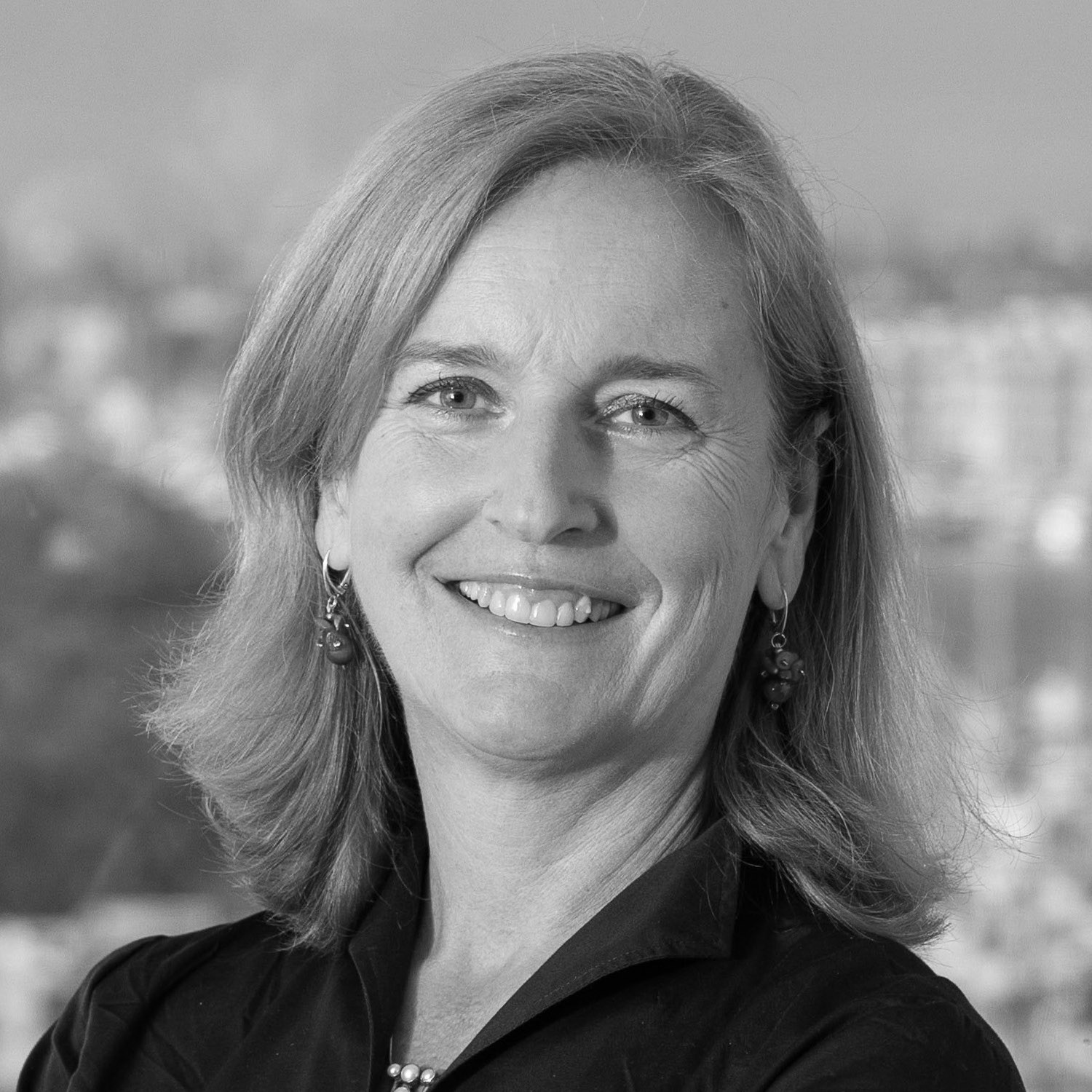
Ewa Deelman,
USC Information Sciences Institute, USA
Ewa Deelman, ISC 2024 Jack Dongarra Early Award Committee member, received her PhD in Computer Science from the Rensselaer Polytechnic Institute in 1998. Following a postdoc at the UCLA Computer Science Department she joined the University of Southern California’s Information Sciences Institute (ISI) in 2000, where she is serving as a Research Director and is leading the Science Automation Technologies group. She is also a Research Professor at the USC Computer Science Department and an AAAS and IEEE Fellow.
The USC/ISI Science Automation Technologies group explores the interplay between automation and the management of scientific workflows that include resource provisioning and data management. Dr. Deelman pioneered workflow planning for computations executing in distributed environments. Her group has led the design and development of the Pegasus Workflow Management software and conducts research in job scheduling and resource provisioning in distributed systems, workflow performance modeling, provenance capture, and the use of cloud platforms for science.
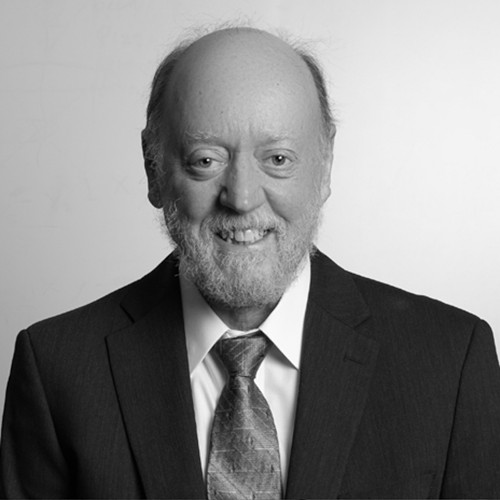
Jack Dongarra
Distinguished Professor,
Computer Science at
University of Tennessee &
Oak Ridge National Laboratory
Jack Dongarra, ISC Fellow, is the recipient of the 2021 ACM A.M. Turing Award. ACM bestowed the award for Dongarra’s pioneering contributions to numerical algorithms and libraries that enabled high performance computational software to keep pace with the hardware improvements that have taken place over the last four decades.
Jack holds an appointment at the University of Tennessee, Oak Ridge National Laboratory, and the University of Manchester. He specializes in numerical algorithms in linear algebra, parallel computing, use of advanced-computer architectures, programming methodology, and tools for parallel computers. He was awarded the IEEE Sid Fernbach Award in 2004; in 2008 he was the recipient of the first IEEE Medal of Excellence in Scalable Computing; in 2010 he was the first recipient of the SIAM Special Interest Group on Supercomputing's award for Career Achievement; in 2011 he was the recipient of the IEEE Charles Babbage Award; in 2013 he received the ACM/IEEE Ken Kennedy Award; and in 2019 he received the ACM/SIAM Computational Science and Engineering Prize. He is a Fellow of the AAAS, ACM, IEEE, and SIAM and a foreign member of the Russian Academy of Science, a foreign member of the UK Royal Society, and a member of the US National Academy of Engineering.
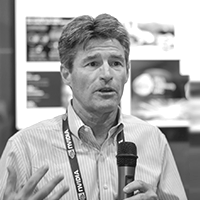
Tom Gibbs
Senior Business Development,
NVIDIA
Tom Gibbs, ISC 2024 Topic Area Chair Machine Learning & AI, is currently responsible for strategy and implementation of SW development programs at NVIDIA to enable and promote research in the pursuit of Grand Challenge Science Problems. He has built on undergraduate studies in computer simulation for physics and engineering problems at California Polytechnic University and Graduate studies in Applied AI at the University of Southern California to engage in wide diversity of applications over the past 40 years in High Performance Computing. His current focus is the convergence of advanced classical simulation methods with AI, experimental data acquisition applied to science challenges in each domain. He has hands on experience enabling early-stage cloud startup companies engaged in applying analytics to vertical industries, innovation programs at CERN, NCSA, TU Munich, DOE labs, PPPL and UKAEA. Tom was a past Chairman of the Open Grid Forum and a member of the Center for Excellence in Supply Chain Management at MIT.
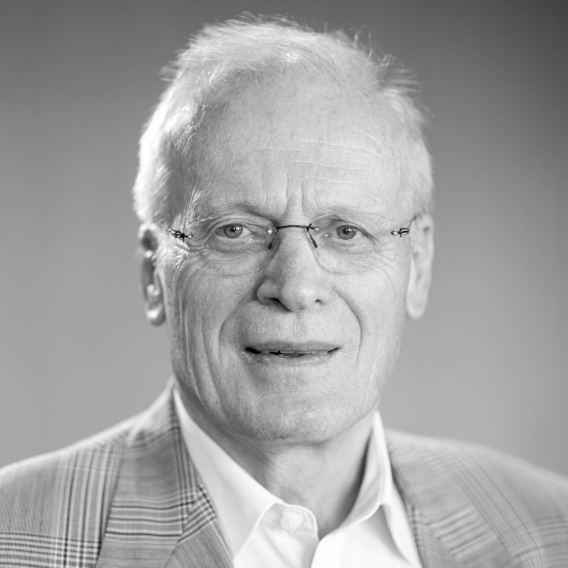
Horst Gietl
ISC Fellow
Horst Gietl, ISC Fellow, studied Mathematics and Information Technology at the Technical University in Munich (TUM). During his studies he received a scholarship from the German Academic Exchange Service (DAAD) at the ETH in Zuerich/Switzerland for 1 year. He holds a Master of Science (Dipl.-Math.) in Mathematics and a PhD (Dr. rer. nat.) from the Faculty of Mathematics at TUM. From 1974 he worked at the Leibniz Computing Centre in Munich in the application and support group for large technical/scientific application programs. During this time he was also leading a project of the German Research Organization named „Vectorization of numerical applications to get highest performance out of a vector processor”. He went on to join Siemens as a manager for the vector processor applications/support group in 1983, working with Fujitsu’s vector processors. In 1991 he assumed the role of Director for Product Marketing and Product Management at the parallel processor manufacturer NCUBE/US. In this position he was head of the support group for interactive multimedia projects and database projects in Europe and the Middle East.
Between 2006 and 2022 he lent his support to ISC Group as an Executive Consultant, where he was instrumental in continuously evolving the technical program of the ISC High Performance conference series.
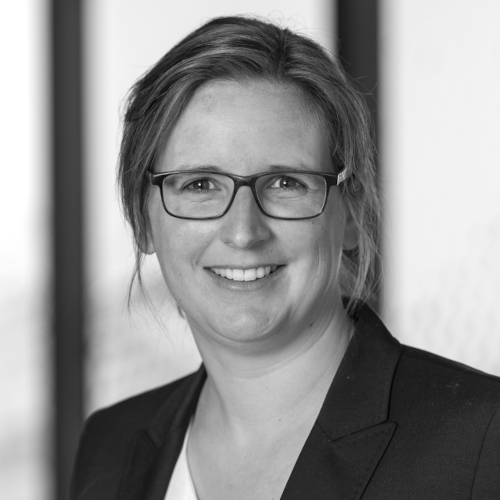
Isabell Gradert
Vice President Central Research & Technology, Airbus
Isabell Gradert, ISC 2024 Tuesday Keynote speaker, is Vice President Central Research & Technology at Airbus. The Airbus Central Research & Technology organization is an active player within the Airbus innovation ecosystem in driving the delivery of groundbreaking technologies for the company’s current and next-generation product and services portfolio for commercial aircraft, helicopters, and spacecraft.
This organization relies on the collective intelligence of its experienced scientists and experts as well as leading academic and scientific institutions. The scientific research of Central R&T focuses on sustainability, safety and security and operational excellence and therefore contributes its efforts to pioneering sustainable aerospace for a safe and united world.
Isabell is an aerospace engineer based in Bremen, Germany. With more than 14 years of experience at Airbus, she held several leading positions in engineering, research and technology.
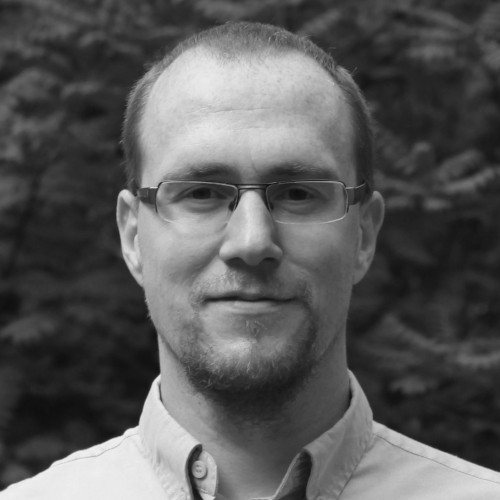
Torsten Hoefler
Professor of Computer Science, ETH Zurich, Switzerland
Torsten Hoefler, ISC 2024 Program Deputy Chair & Jack Dongarra Early Career Award Committee member, is a Professor of Computer Science at ETH Zurich, a member of Academia Europaea, and a Fellow of the ACM and IEEE. His research interests revolve around the central topic of "Performance-centric System Design" and include scalable networks, parallel programming techniques, and performance modeling. Torsten won best paper awards at the ACM/IEEE Supercomputing Conference SC10, SC13, SC14, SC19, SC22, EuroMPI'13, HPDC'15, HPDC'16, IPDPS'15, and other conferences. He published numerous peer-reviewed scientific conference and journal articles and authored chapters of the MPI-2.2 and MPI-3.0 standards. He received the IEEE CS Sidney Fernbach Award, the ACM Gordon Bell Prize, the ISC Jack Dongarra award, the Latsis prize of ETH Zurich, as well as both ERC starting and consolidator grants. Additional information about Torsten can be found on his homepage at htor.inf.ethz.ch.

Shadi Ibrahim
Research Scientist, Inria, France
Shadi Ibrahim, ISC 2024 Tutorial Chair, is a Research Scientist at Inria. He obtained his Ph.D. degree in Computer Science from Huazhong University of Science and Technology (HUST) in Wuhan of China in 2011. His current research interests are in scalable data management, storage systems, data-intensive computing, parallel I/O and distributed file systems, virtualization technology and Cloud/Fog computing. His work has been published in prestigious international journals and conferences in distributed and parallel systems (IEEE TPDS, Elsevier FGCS, ACM SoCC, ICDCS, IPDPS, VEE, CCGrid, Cluster). Dr. Ibrahim is the recipient of the IEEE TCSC Award for Excellence in Scalable Computing (Middle Career Researcher) in 2020 and currently serves in the Editorial Board of IEEE Internet Computing magazine. He is a Distinguished member of the ACM and a Senior member of IEEE.
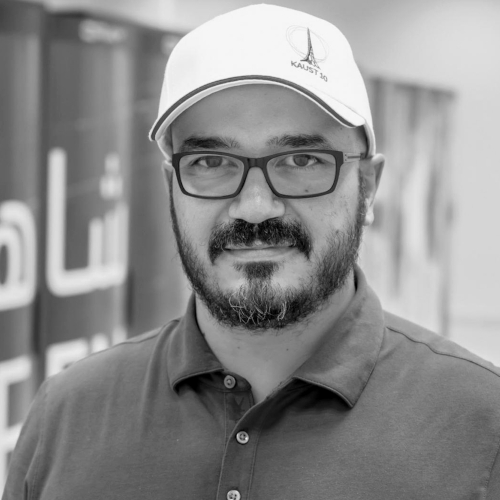
Hatem Ltaief
Principal Research Scientist, Extreme Computing Research Center, KAUST, Saudi Arabia
Hatem Ltaief, ISC 2024 HPC in Asia-Pacific Chair, is the Principal Research Scientist of the Extreme Computing Research Center, King Abdullah University of Science and Technology (KAUST), Saudi Arabia, where is also advising several KAUST students in their MS and PhD research. His research interests include parallel numerical algorithms, parallel programming models, and performance optimizations of large-scale scientific applications (including climate/weather predictions, seismic processing, computational astronomy, wireless communications) on multicore architectures, hardware accelerators, and customized systems for large language models. He received several best papers’ recognitions at EuroPar, PASC, and ISC conferences with the GAUSS award in 2020. He was among the finalist teams for the Gordon Bell prize at SC22 and SC23. He is the current vice chair SIAM Activity group on Supercomputing.
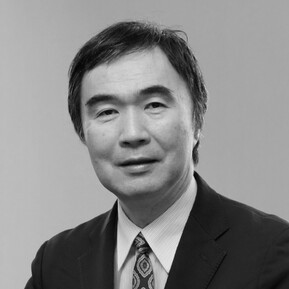
Satoshi Matsuoka
Director, Riken Center for Computational Science (R-CCS), Japan
Satoshi Matsuoka, ISC Fellow, is director of Riken Center for Computational Science (R-CCS) since April 2018. R-CCS is the Tier-1 national HPC center for Japan, developing and hosting Japan’s flagship ‘Fugaku’ supercomputer which has become the fastest supercomputer in the world in all four major supercomputer rankings in 2020 and 2021 (Top500, HPCG, HPL-AI, Graph500), along with multitudes of ongoing cutting edge HPC research being conducted, including investigating Post-Moore era computing, especially the future FugakuNEXT supercomputer.
Other accolades include the Fellow positions in societies/conferences ACM, ISC, and the JSSST; the ACM Gordon Bell Prizes in 2011 & 2021; the IEEE-CS Sidney Fernbach Award in 2014 as well as the IEEE-CS Computer Society Seymour Cray Computer Engineering Award in 2022, both being the highest awards in the field of HPC, and the only individual to receive both awards; the Technical Papers Chair and the Program Chair for ACM/IEEE Supercomputing 2009 and 2013 (SC09 and SC13) respectively as well as many other conference chairs, and the ACM Gordon Bell Prize selection committee chair in 2018.
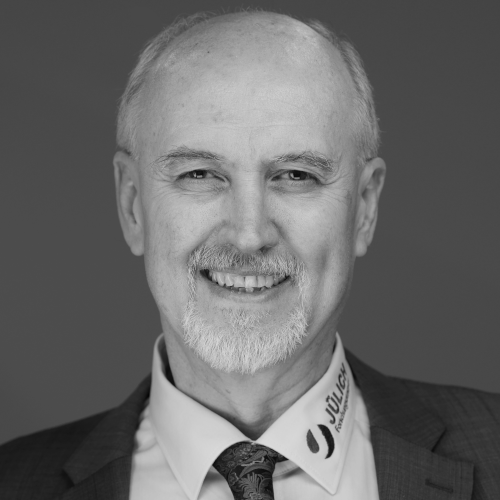
Bernd Mohr
Senior Scientist, Forschungszentrum Juelich, Germany
Bernd Mohr, ISC 2024 HPC in Latin America Chair, started to design and develop tools for performance analysis of parallel programs already with his diploma thesis (1987) at the University of Erlangen in Germany, and continued this in his Ph.D. work (1987 to 1992). During a three year postdoc position at the University of Oregon, he designed and implemented the original TAU performance analysis framework. Since 1996 he has been a senior scientist at Forschungszentrum Juelich. Since 2000, he has been the team leader of the group ''Programming Environments and Performance Analysis''. Besides being responsible for user support and training in regard to performance tools at the Juelich Supercomputing Centre (JSC), he is leading the Scalasca performance tools efforts in collaboration with Prof. Felix Wolf of TU Darmstadt. Since October 2022, he also serves as head for the JSC division ''Application support'', for which he was deputy head for 15 years. He was an active member in the International Exascale Software Project (IESP/BDEC) and work package leader in the European (EESI2) and Juelich (EIC, ECL) Exascale efforts. For the SC and ISC Conference series, he served on the Steering Committee. He is the author of several dozen conference and journal articles about performance analysis and tuning of parallel programs.
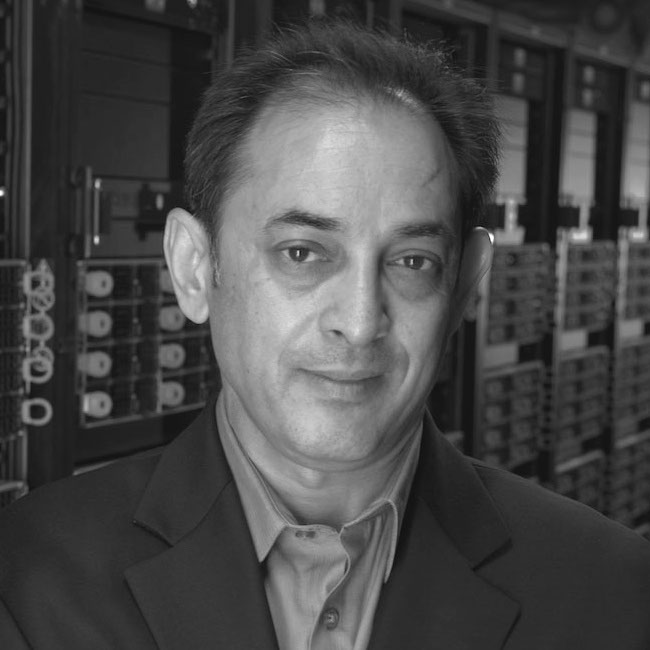
Manish Parashar
Director of the Scientific Computing and Imaging (SCI) Institute, University of Utah, USA
Manish Parashar, ISC 2024 Topic Area Chair Applications & Use Cases, is Director of the Scientific Computing and Imaging (SCI) Institute, Chair in Computational Science and Engineering, and Presidential Professor, Kalhert School of Computing at the University of Utah. He recently completed an IPA appointment at the National Science Foundation where he served as Office Director of the NSF Office of Advanced Cyberinfrastructure, as well as co-chair of the National Science and Technology Council’s Subcommittee on the Future Advanced Computing Ecosystem and the National Artificial Intelligence Research Resource Task Force (NAIRR). Manish is the founding chair of the IEEE Technical Consortium on High Performance Computing (TCHPC), and is Fellow of AAAS, ACM, and IEEE/IEEE Computer Society. For more information, please visit http://manishparashar.org

Daniel Reed
Presidential Professor in Computational Science, University of Utah
Daniel A. Reed, ISC 2024 Jack Dongarra Early Career Award Committee member, is the Presidential Professor in Computational Science at the University of Utah, where he previously served as Senior Vice President for Academic Affairs (Provost). He has served in a variety of senior academic and industry roles, including as Vice President for Research and the University of Iowa and as Microsoft’s Corporate Vice President for Technology Policy and Extreme Computing. Before joining Microsoft, he was the founding director of the Renaissance Computing Institute (RENCI) at the University of North Carolina at Chapel Hill and Director of the National Center for Supercomputing Applications (NCSA) at the University of Illinois. Dr. Reed is currently chair of the U.S. National Science Board (NSB), which provides oversight for the U.S. National Science Foundation. He has served as a member of the U.S. President’s Council of Advisors on Science and Technology (PCAST) and the U.S. President’s Information Technology Advisory Committee (PITAC). Dr. Reed was the past chair of the Board of Directors of the Computing Research Association (CRA), which represents PhD-granting computer science departments in North America. As chair of CRA, he was one of the co-founders of the Computing Community Consortium (CCC) and was responsible for envisioning new ideas on computing research. Dr. Reed is a Fellow of the ACM, the IEEE, and the AAAS. He received his B.S. from Missouri
University of Science and Technology and his M.S. and Ph.D. from Purdue University, all in computer science.
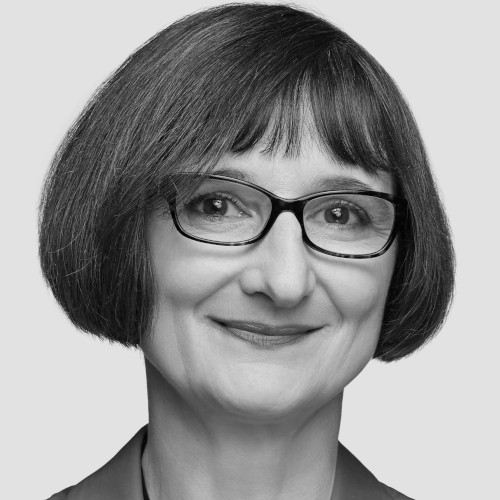
Heike Riel
IBM Fellow, Head of Science of Quantum & Information Technologies, IBM Research Europe
Heike Riel, ISC 2024 Topic Area Chair Quantum Computing, is IBM Fellow, Head of Science of Quantum & Information Technologies and Lead of IBM Research Quantum EMEA. She leads the Science of Quantum & InformationTechnologies department aiming to create scientific and technological breakthroughs in Quantum Computing and Technologies, Physics of Artificial Intelligence, Nanoscience and Nanotechnology and to explore new directions to computing.
She received the master’s in physics from the Friedrich-Alexander University of Erlangen-Nürnberg and the PhD in physics from University of Bayreuth and an MBA from Henley Business College. She has authored more than 155 peer-reviewed publications and filed more than 50 patents
She has received several prestigious honors, e.g., elected member of the Leopoldina – German National Academy of Sciences and the Swiss Academy of Engineering Sciences; she was awarded the APS David Adler Lectureship Award in the Field of Materials Physics, the Applied Physics Award of the Swiss Physical Society, and the 2022 IEEE Andrew S. Grove Award. She was honored as Fellow of the American Physical Society, and with an honorary doctorate by Lund University. In February 2022 she was elected to the National Academy of Engineering.
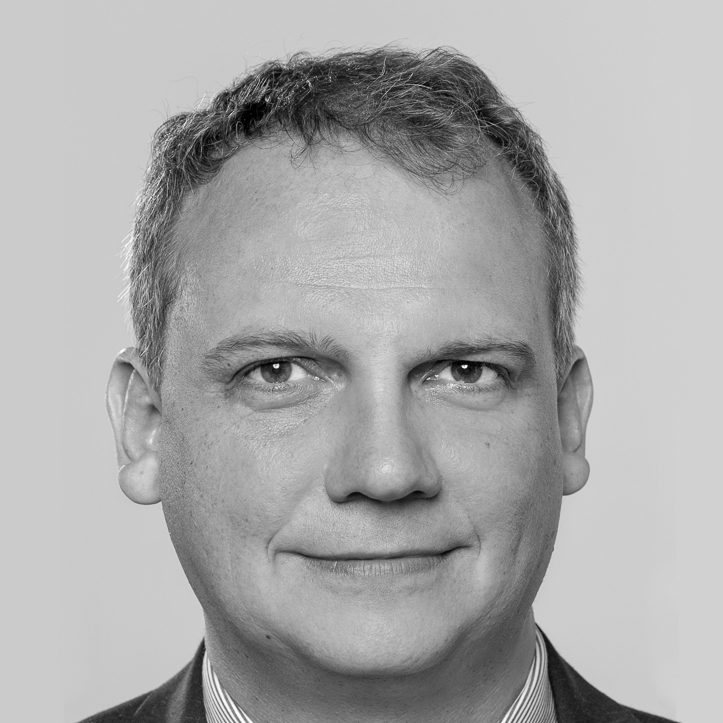
Martin Schulz
Full Professor & Chair for Computer Architecture & Parallel Systems, Technische Universität München, Germany
Martin Schulz, ISC 2024 Topic Area Chair Programming Environments & System Software, is a Full Professor and Chair for Computer Architecture and Parallel Systems at the Technische Universität München (TUM), which he joined in 2017, as well as a member of the board of directors at the Leibniz Supercomputing Centre. Prior to that, he held positions at the Center for Applied Scientific Computing (CASC) at Lawrence Livermore National Laboratory (LLNL) and Cornell University. He earned his Doctorate in Computer Science in 2001 from TUM and a Master of Science in Computer Science from UIUC.
Martin's research interests include parallel and distributed architectures and applications; performance monitoring, modeling and analysis; memory system optimization; parallel programming paradigms; tool support for parallel programming; power-aware parallel computing; and fault tolerance at the application and system level, as well as quantum computing and quantum computing architectures and programming, with a special focus on HPC and QC integration.
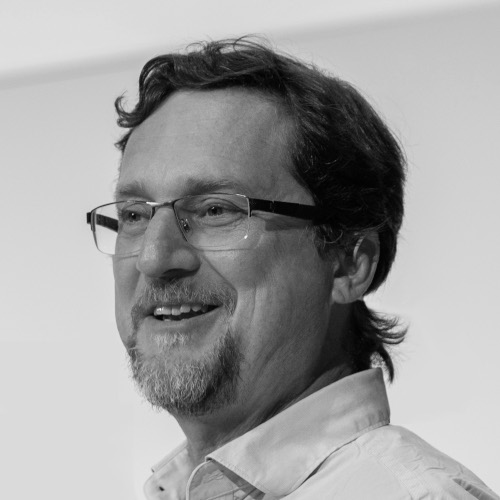
John Shalf
Department Head for Computer Science, Lawrence Berkeley National Laboratory, USA
John Shalf, ISC 2024 Wednesday Keynote Speaker, is the Department Head for Computer Science at Lawrence Berkeley National Laboratory. Behind the scenes, Shalf has lent his expertise to lay the groundwork for executing the US government’s exascale ambition since 2009. He also formerly served as the Deputy Director for Hardware Technology on the US Department of Energy (DOE)-led Exascale Computing Project (ECP) before he returned to his department head position at LBNL.
He has co-authored over 100 peer-reviewed publications in parallel computing software and HPC technology, including the widely cited report “The Landscape of Parallel Computing Research: A View from Berkeley” (with David Patterson and others). Before coming to Berkeley Laboratory, John worked at the National Center for Supercomputing Applications and the Max Planck Institute for Gravitation Physics/Albert Einstein Institute (AEI), where he co-created the Cactus Computational Toolkit.
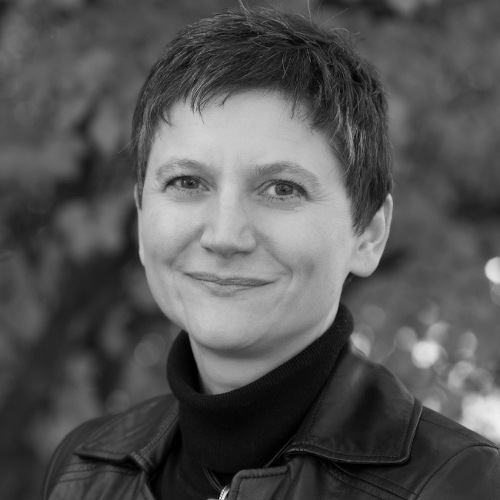
Michela Taufer
Jack Dongarra Professor in High Performance Computing, The University of Tennessee, Knoxville
Michela Taufer, ISC 2024 Program Chair, is an ACM Distinguished Scientist and holds the Jack Dongarra Professorship in High Performance Computing in the Department of Electrical Engineering and Computer Science at the University of Tennessee Knoxville (UTK). She earned her undergraduate degrees in Computer Engineering from the University of Padova (Italy) and her doctoral degree in Computer Science from the Swiss Federal Institute of Technology or ETH (Switzerland). From 2003 to 2004 she was a La Jolla Interfaces in Science Training Program (LJIS) Postdoctoral Fellow at the University of California San Diego (UCSD) and The Scripps Research Institute (TSRI), where she worked on interdisciplinary projects in computer systems and computational chemistry.
Michela has a long history of interdisciplinary work with scientists. Her research interests include software applications and their advance programmability in heterogeneous computing (i.e., multi-core platforms and GPUs); cloud computing and volunteer computing; and performance analysis, modeling and optimization of multi-scale applications. She has been serving as the principal investigator of several NSF collaborative projects. She also has significant experience in mentoring a diverse population of students on interdisciplinary research. Michela's training expertise includes efforts to spread high-performance computing participation in undergraduate education and research as well as efforts to increase the interest and participation of diverse populations in interdisciplinary studies.
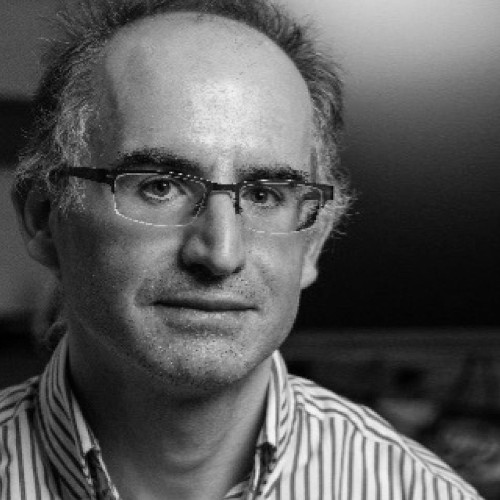
Antonino Tumeo
Research Scientiest, Pacific Northwest National Laboratory, USA
Dr Antonino Tumeo, ISC 2024 Project Poster Chair, received an MS degree in Informatic Engineering (2005) and a PhD in Computer Engineering (2009) from Politecnico di Milano in Italy. Since February 2011, he has been a research scientist in Pacific Northwest National Laboratory’s (PNNL) High-Performance Computing (HPC) group. He joined PNNL in 2009 as a post-doctoral research associate. Previously, he was a post-doctoral researcher at Politecnico di Milano. His research interests include modeling and simulation of high performance architectures, hardware-software codesign, electronic design automation, high-level synthesis, field-programmable gate arrays (FGPA) prototyping, and general-purpose computing on graphics processing units (GPGPU). Antonino is currently the principal investigator of SODALITE (Software Defined Accelerators from Learning Tools Environment), a project under the Real Time Machine Learning program of the Defense Advanced Research Projects Agency related to the automatic generation of machine learning accelerators, and SO(DA)2 (Software Defined Architectures for Data Analytics), a project under the Data-Model Convergence Initiative. The SO(DA)2 project is related to the development of a toolchain for efficient acceleration of emerging HPC applications (integrating scientific simulation with machine learning and data analytics) in the context of novel reconfigurable architectures.
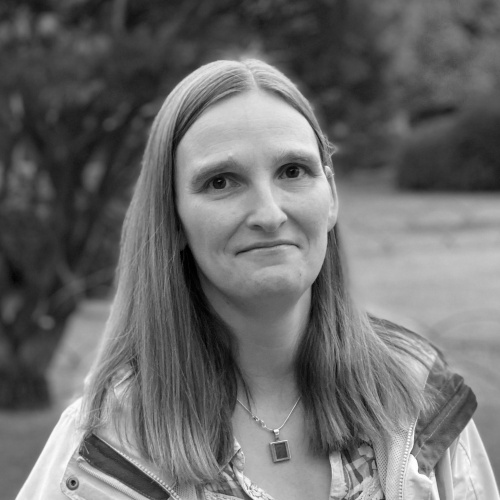
Michèle Weiland
Director of Research & Met Office Joint Chair, EPCC, The University of Edinburgh, UK
Michèle Weiland, ISC 2024 Workshop Chair, is the Director of Research and Met Office Joint Chair at EPCC, the supercomputing at the University of Edinburgh. She specialises in novel technologies for extreme scale parallel computing, leading EPCC’s technical work in the UKRI funded ASiMoV Strategic Prosperity Partnership with Rolls-Royce, which is developing high-fidelity multi-physics simulations of aircraft engines. She also leads the University of Edinburgh’s involvement in the Met Office Academic Partnership and collaborates with the Met Office on developing their next generation weather modelling systems. She is a PI on the AI for Net Zero project “Real-time Digital Optimisation and Decision Making for Energy And Transport Systems” and is a regular contributor to the UK’s Net Zero Digital Research Infrastructure project. She is a member of the EPSRC e-Infrastructure Strategic Advisory Team
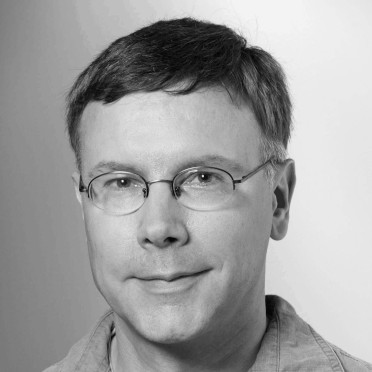
Brian Wylie
Scientific Researcher, Forschungszentrum Juelich, Juelich Supercomputing Centre, Germany
Brian J. N. Wylie, ISC 2024 BoF Chair, has been a scientific researcher in Juelich Supercomputing Centre of Forschungszentrum (Research Centre) Juelich since 2004. He is part of the group developing and applying the Scalasca toolset for scalable performance analysis of large-scale parallel applications. His goal is to assist application developers to understand and improve the parallel performance and scalability of their applications.
He contributed to the EU Centre of Excellence for Performance Optimisation and Productivity (POP), particularly focused on assessing HPC CoE flagship codes, and management of the High-Q Club of highest scaling codes on the JUQUEEN BlueGene/Q and associated workshops. He also coordinated training activities of the Virtual Institute -- High Productivity Supercomputing (VI-HPS), and organizes hands-on conference tutorials and bespoke training workshops at leading HPC centres worldwide.
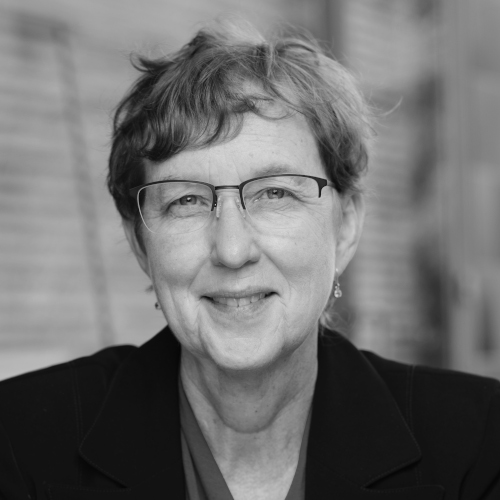
Kathy Yelick
Vice Chancellor for Research, University of California, Berkeley, USA
Kathy Yelick, ISC 2024 Conference Keynote, is the Vice Chancellor for Research at the University of California, Berkeley, where she also holds the Robert S. Pepper Distinguished Professor of Electrical Engineering and Computer Sciences. She is also a Senior Faculty Scientist at Lawrence Berkeley National Laboratory. Yelick was Director of the National Energy Research Scientific Computing Center (NERSC) from 2008 to 2012 and led the Computing Sciences Area at Lawrence Berkeley National Laboratory from 2010 through 2019. She is a member of the National Academy of Engineering and the American Academy of Arts and Sciences, and is a Fellow of the Association for Computing Machinery (ACM) and the American Association for the Advancement of Sciences (AAAS).


